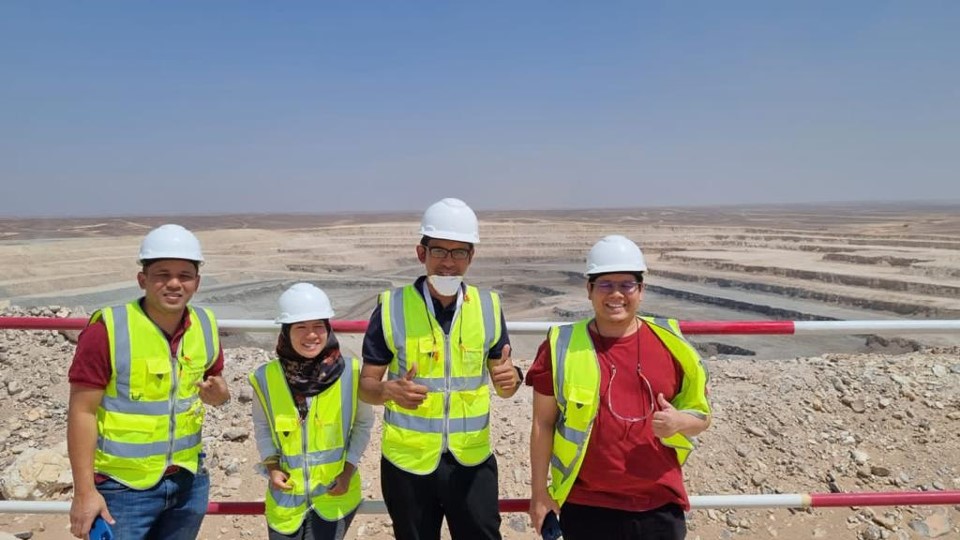In July 2023, I was one of four academicians from various universities in Malaysia who were selected under Education Malaysia Jordan (EMJ) and Attarat Power Corporation (APCO) to conduct research and case studies at the world’s largest direct fire oil shale power plant.
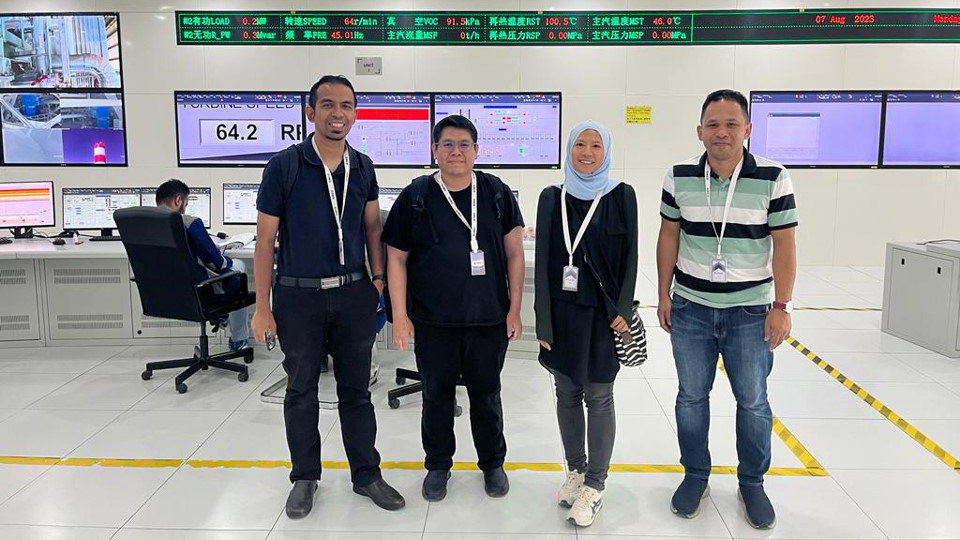
From left: Dr. Norshah from UNIMAP, Dr. Asyraf from UK, yours truly and Dr. Halim from UMSAS in the operation room.
Shale oil is a bitumen rock, almost like coal but differ in characteristics and calorific value. In simple words, it is oil embedded in rock. It is a very unique and special, considering that only two countries in the world, of one which is Jordan and another is Estonia, using this type of oil shale for electricity generation.
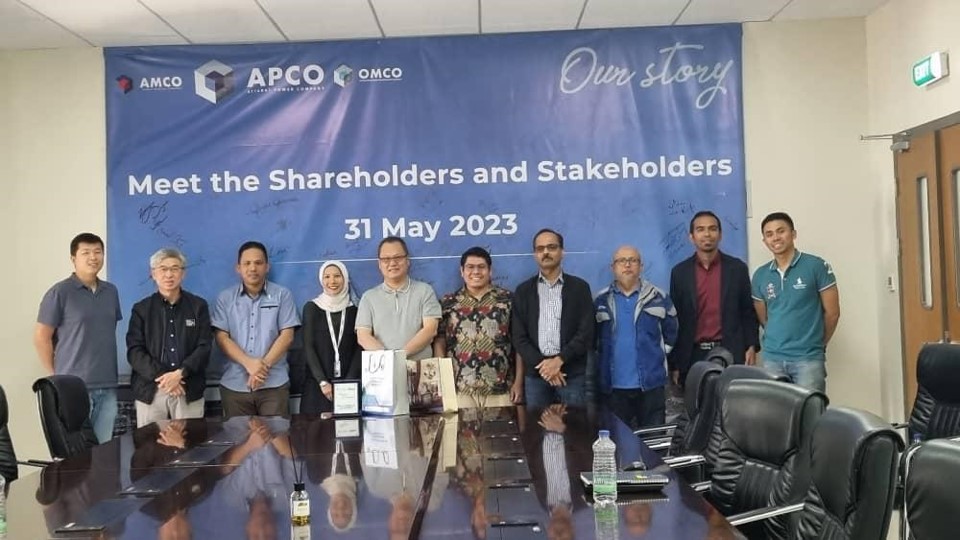
With top management and project supervisors in APCO.
My work in Jordan was to investigate climate change risks and adaptation in the Attarat Power Plant, which is located in Al-Qatranah, a barren flat desert, an hour drive from the country’s capital Amman. It was surprising to me that Jordan does not have any Petroleum and has very little deposit of natural gas – not enough to generate electricity for its population. The country imported 95% of its energy from neighbouring countries, Iraq, Saudi, Egypt and Israel.
Jordan is also one of the driest countries in the world, with less than 200 mm per year in comparison to Malaysia with average rainfall of 2000 mm. What made Jordan appealing to me was the conspiracy theory about the country hiding its oil to secure its sovereignty from invasion and unscrupulous oil companies.
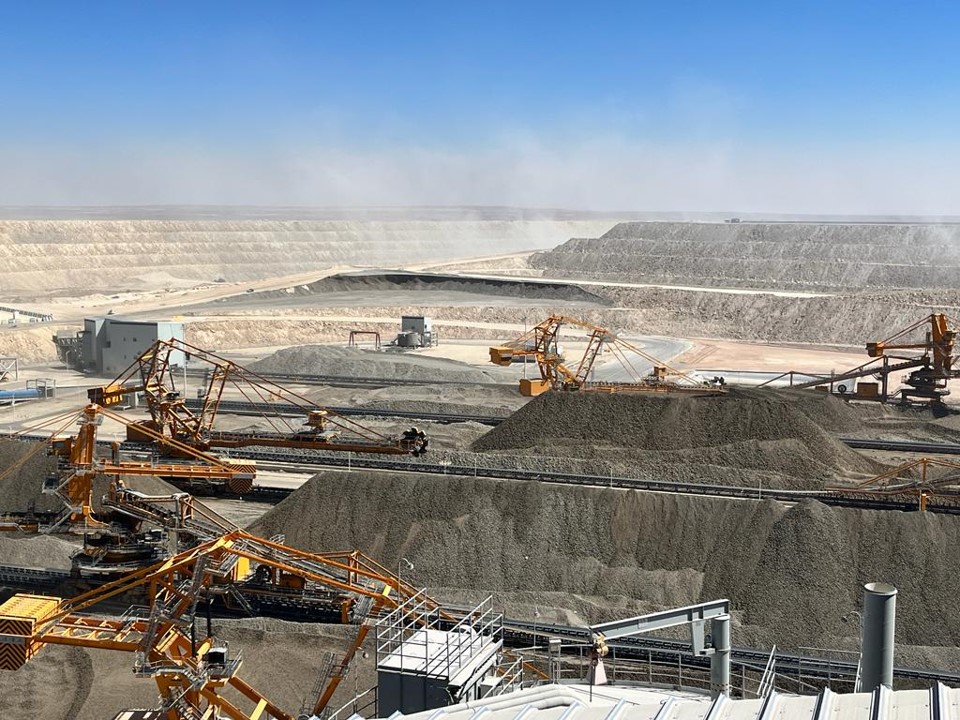
After the mining, solid rock from the site will be transferred here for crushing before they can be used for fuel.
I had a lot of questions in mind, why would Malaysia invest and spent RM 10 billion into a power plant that burn oil rock and producing more than 60% of waste in the form of ashes. We also need water to produce electricity, while Jordan is considered water poor – Unless we solve the second law of thermodynamics – the direct conversion of chemical energy in the rock to electricity without the need of kinetics from the water vapour and heat to generate energy from a magnet. These two questions prompted me to write an essay about power plant vulnerabilities and risks to the threat and challenges to climate change.
While my stance against greenhouse gasses emission to cause climate change remain unaverred, my work in Attarat was contradictory and terrifyingly educational. Surprisingly led me to learn more about the people, geography, rocks, water and climate. I experienced heat wave during the second week of August, 2023 for the first time in life. My Iphone which was placed in the back pocket of my jeans got overheated. Even the boiler did not reach its optimum efficiency and used larger than usual volume of water.
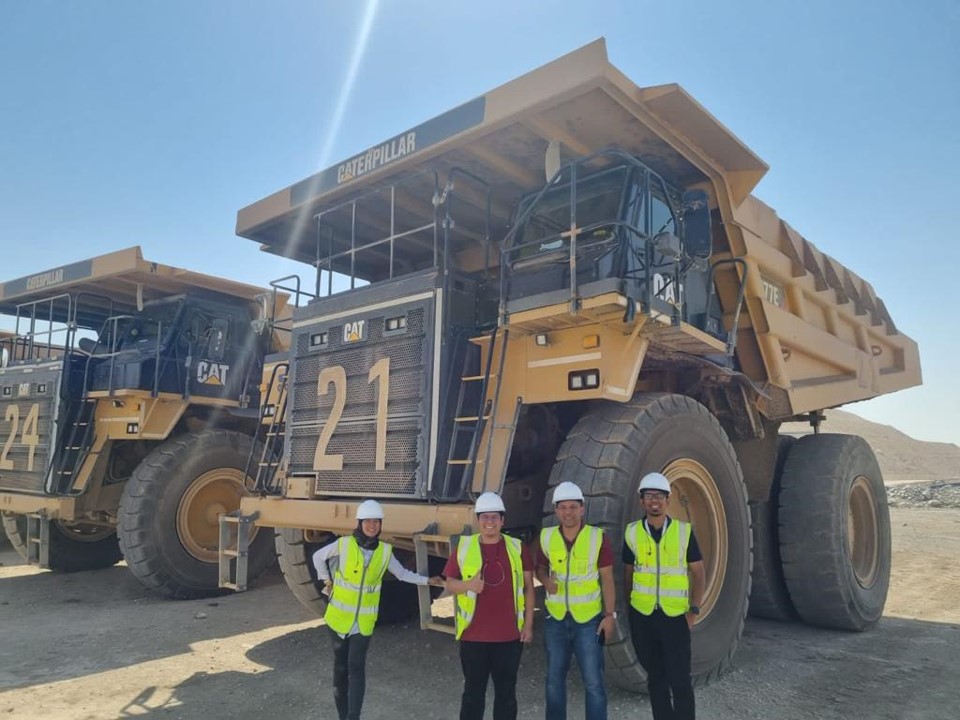
Us with fleet of behemoth vehicles use to transfer oil shale rocks to the power plant.
Working as an engineer in the power plant requires a lot of energy and mental capacities to deal with unprecedented problems for as long as the plant is operating and not in shut down mode. I was the only female among 500 men and that did not make me any queen or princess. There were two other females working in laboratories. My supervisors always had their phones on alert, even at night in case of any troubles, accidents and issues reported. Integrated Design Project (IDP), a killer subject that is notoriously hated by many of our department students is nothing compared to the work in APCO. Every day operation was like PNID on steroid, that every blink and alarm in the monitoring room indicated that something happened and needed to be investigated and dealt with.
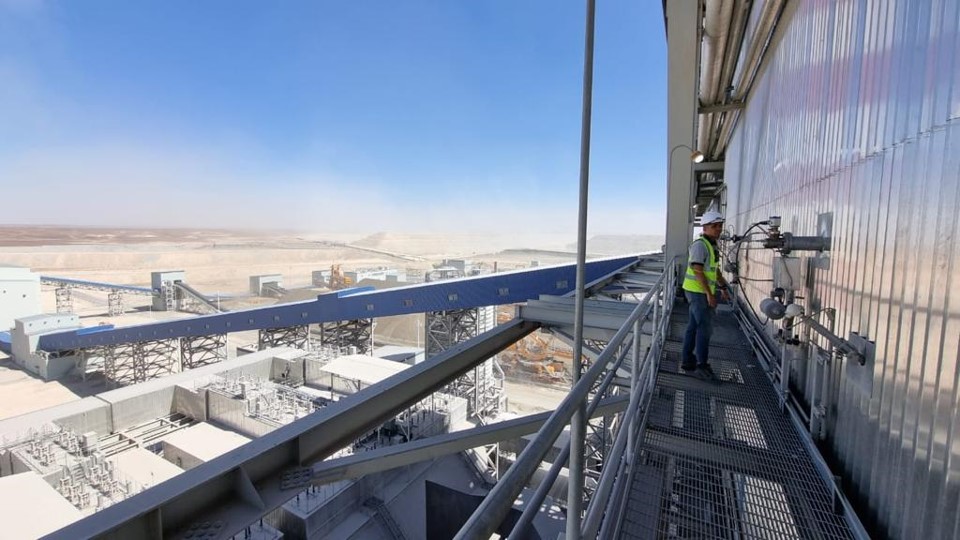
Challenging yet it was very exciting to work in harsh, rigid and extreme weather environment.
There was a time that I had to climb up to seven stories with my supervisor to take a look at a boiler because the lift was not working. In the blazing summery desert hot, it was uncomfortable because I did not sweat as much as I would have been in Malaysia. I was terrified from getting a heat stroke because of the wet-bulb temperature, where the body heat is at equilibrium with the surrounding and do not produce sweat, causing the internal organ to be heated because the body lost its way to cool down.
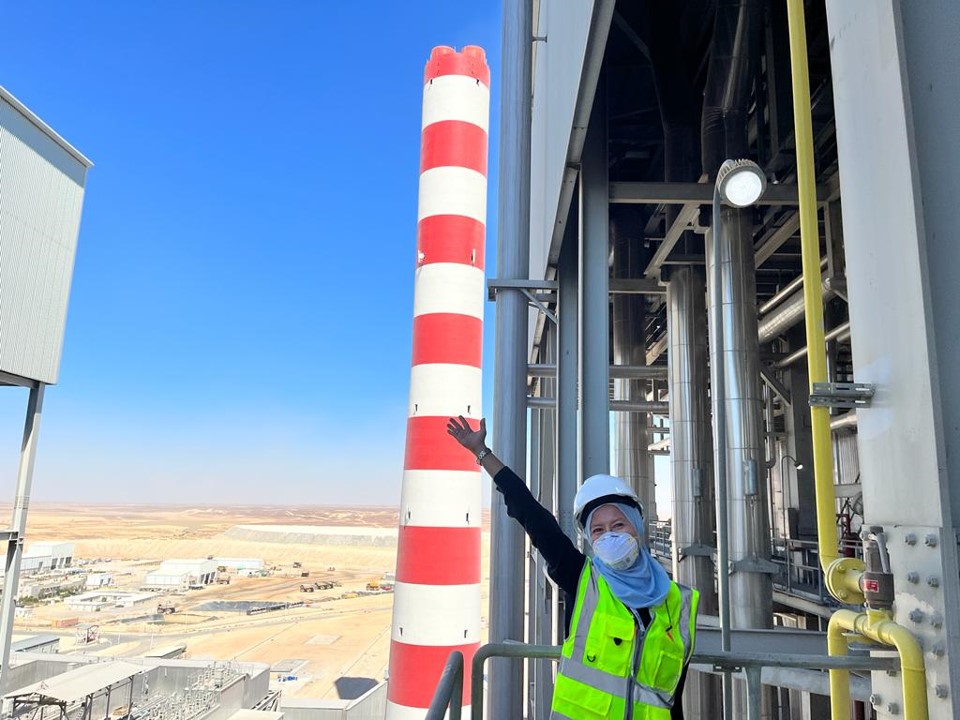
View overlooking the desert.
Climate change is real – and it is scary. That very same week, Anthony Guterres, the UN General Secretary announced that the era of global warming has ended and the era of the global boiling has arrived. Almost every day in the month of June, July and August was recorded the hottest on record.
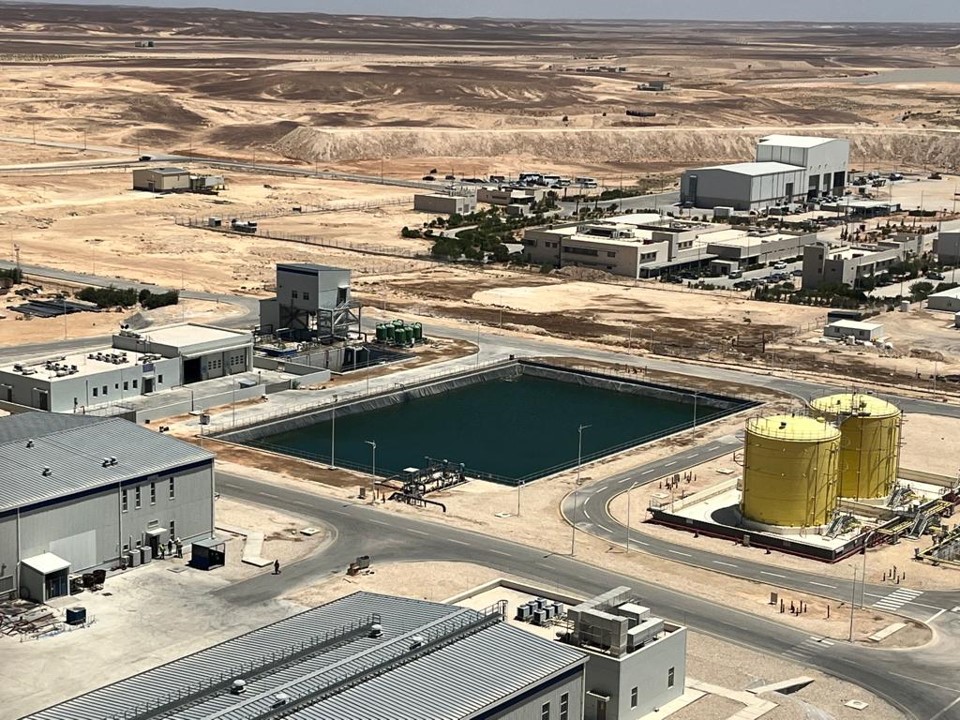
View from the power plant overlooking the water treatment site to treat used water in the operation and emergency water tank.
While we are busy debating about the cause and effects of climate change, there is a less attention that look into Jordan energy self-sufficiency and the need to invest in cleaner energy. Unlike the neighbouring countries which rich in petroleum and natural gas, Jordan is rich with oil shale in the form of mountains that need to be quarried, churned and burned for energy. The rock deposit is the 7th largest in the world, and meant to supply 16-30% of nationwide electricity need. This project contributes towards Jordan’s long term energy security and independence. Therefore it is unfair to limit the burning of oil shale for electricity when it is much needed for economic activities and development to the country, unless clean energies such as solar, wind and others are able to keep up with energy capacities generated by the fossil fuel.
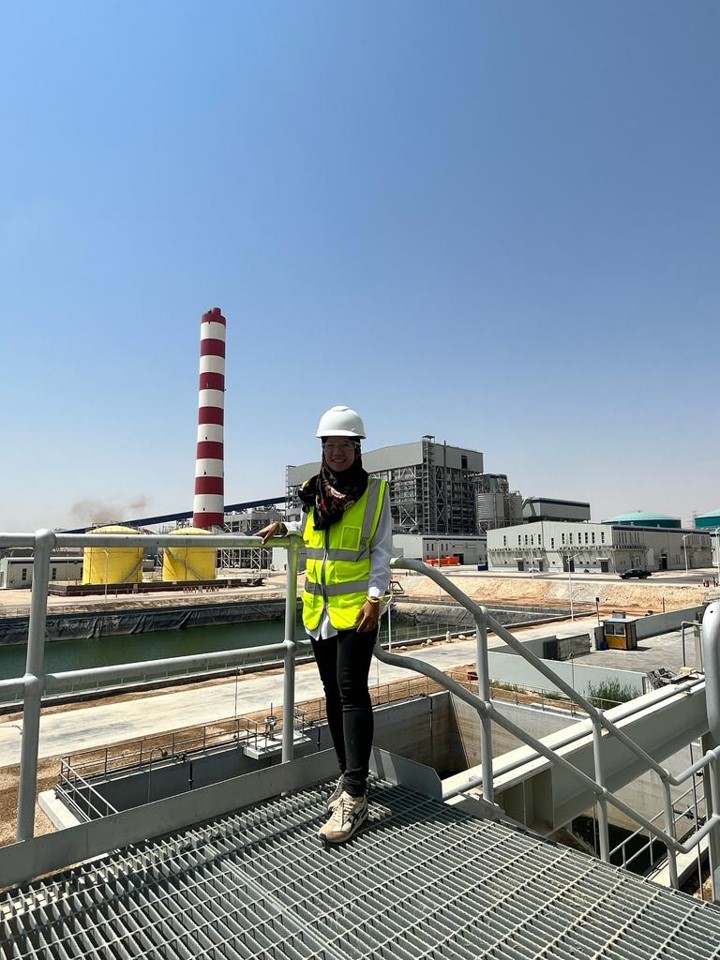
Myself working at the water treatment site in APCO.
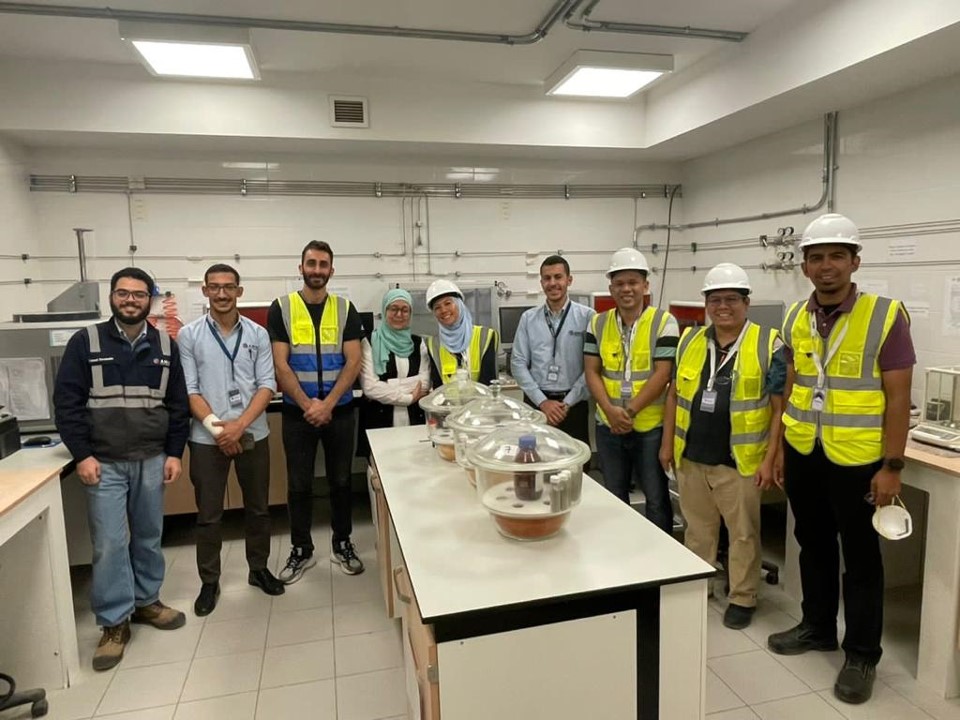
Our team with oil shale laboratory members.
Access to energy is human right as much as our right to live in a cleaner and safe environment. Burning oil shale in Jordan also means that they have to deal with 5 million tonnes of ashes annually, and the stock pile will build up over the years. The source of water to the power plant is non-renewable and taken from the Azraq basin, a reservoir located 400 m to 2 km depth underground. Although the water usage is kept in a close-loop and recyclable, a 4 million meter cubic is extracted every year with 1-4% loss. Threats to water availability may come from over-population and refugees, agricultural activities, evaporation, climate change and industrial uses.
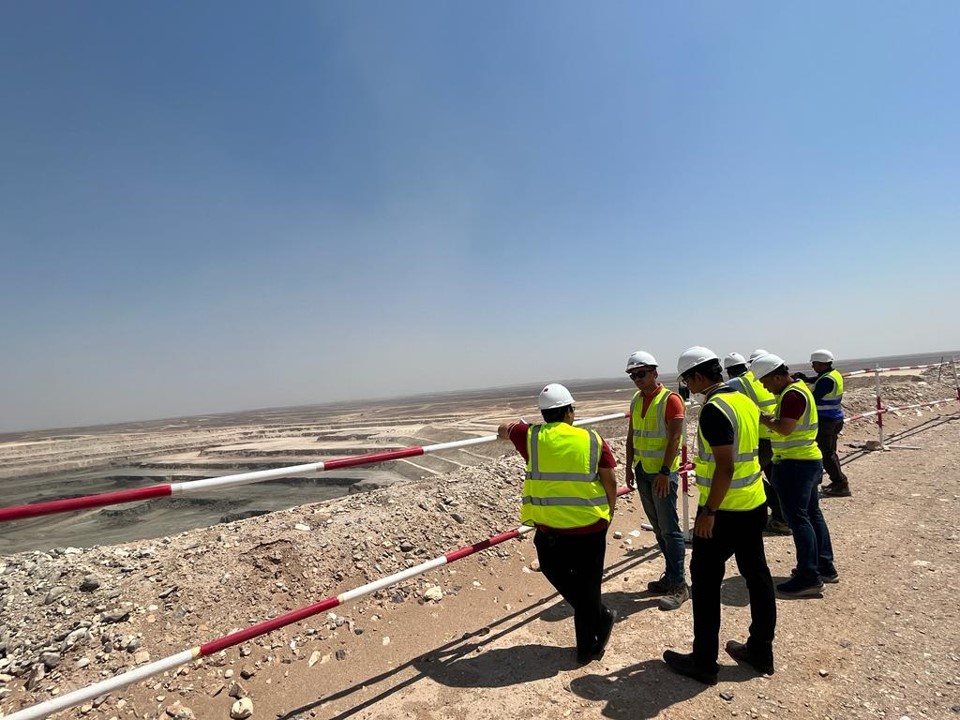
Through this experience, I hope to bring new perspectives and light into the complexities of energy security and the need for socio-economic activities and development to the country. There is a need to improve the energy sector and decision making – with detail local assessments to provide greater understanding and outcomes. I hope that this work be of beneficial and useful to the students and readers.
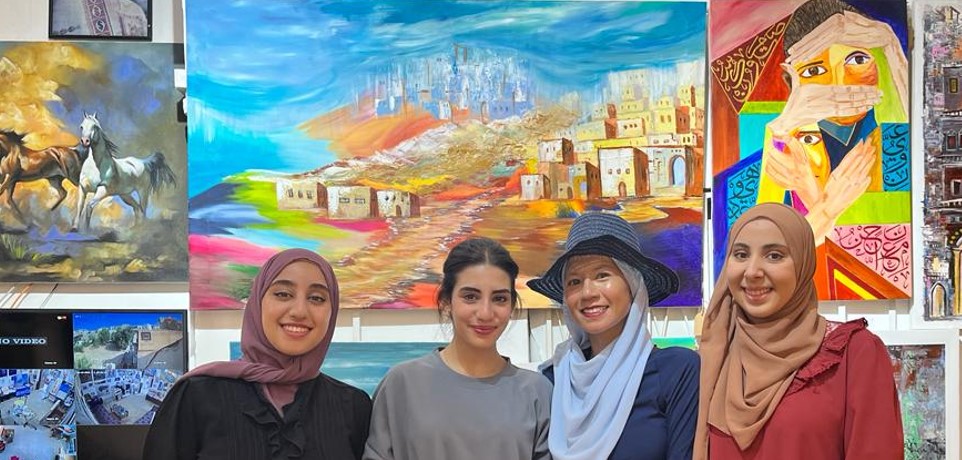
Myself and new friends at the art gallery located at the front of the Roman Theater in Amman, Jordan.
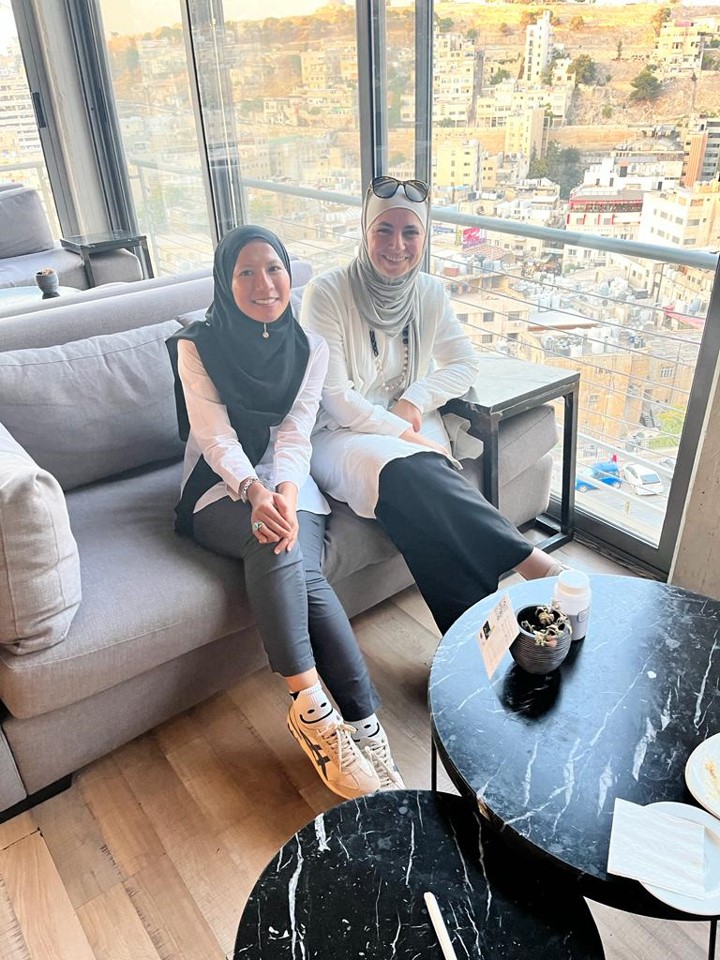
With Dr. Linda Hammd from Chemical Engineering Department, University of Jordan to share experience and knowledge in Wild Jordan, which has the best view in Amman – overlooking the Coliseum and Hercules Temple.

